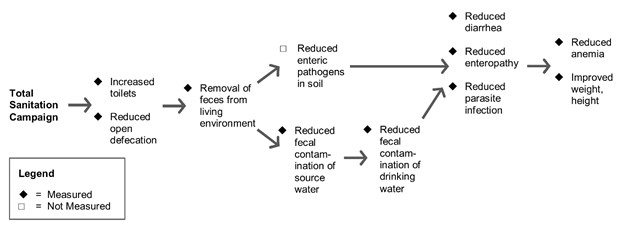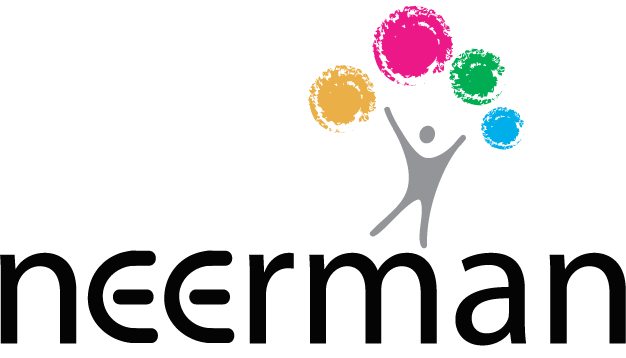What are SMART Indicators in Monitoring and Evaluation?
February 10, 20217 Validation, Constraint, and Logic Checks you must enforce in a CAPI App
February 25, 2021Understanding Logical Framework and Theory of Change
The logical framework approach (also referred to as logframe) has guided designing, monitoring, and analyzing aid initiatives for several years now. However, “another” approach known as Theory of Change (ToC) is also being used extensively in recent years. It is difficult to explain the extent to which these two methodologies overlap, how they are different, or why there are different terminologies in the first place, and this has continued to raise debate and confusion among the practitioners of the approaches. Theory of change is a process as well as an end-point of describing how a programme of intervention is expected to deliver the ultimate development objective whereas log-frame is one of the ways this information can be organized – and more importantly, used in management and implementation of the programme. Let us try to clarify these differences further.
What is Logical Framework?
Logical Framework is sometimes known as results framework or even monitoring framework. The word ‘framework’ is common because we use a matrix or table structure to organize information about the programmes implementation, expected outputs, and higher-order outcomes. Below is a typical structure of a logframe.
[wptb id=27970]Logframe is thus a planning tool that summarizes activities, outputs, and outcomes of a project, and how these will be measured. This framework is used by planners, implementers, and monitoring teams. This framework also clearly helps to document the agreement and expectations between the funders and doers. However, logframe implicitly assumes that the planners of implementers ‘know’ how to deliver the outcome or goal. As long as the plan is followed and targets are met, the larger objective or goals should be met.
History of Logframe
The logical framework approach was established in the 1970s as a technique of designing programs for the United States Agency for International Development (USAID), capturing vital elements of the programs in a single table that is referred to as the log frame. By the end of the next decade, this methodology became an integral part of the funding for many international development initiatives. The log frame was used mostly by non-governmental organizations (NGO), for example, a CARE guidebook for project designers stated that eighty-four percent (84%) of its designs use the logical framework (Caldwell 2002). The dominance of log frame for official development and application for funds was illustrated in 2011 when Britain’s DFID modified its regulations to ensure every newly approved project irrespective of project value has a log frame (DFID 2011).
What is Theory of Change?

‘Theory of change’ process asks questions the assumption that we know how to deliver impacts. ToC breaks the programme down to multiple small steps, identifies implicit and explicit assumptions, finds dependence on external factors, and then questions the existing evidence that helps us validate these linkages. Therefore, TOC is an extremely useful tool to use at the project conception and design stage. Once we have committed a set approach and procedure to funders (or others), then we rather just use log-frame in good faith and hope all our assumptions come true. Perhaps, this is the time some of us can reflect on why the speed of development is lagging behind the efforts and funding that go into the development sector.
The ToC methodology originated independently from American universities, and the use of this approach of planning development programs dates far back as the late 1990s. The Aspen Institute (USA) and Carol Weiss were the early proponents of this methodology and it originated from a practice referred to as ‘Theory-Based Evaluation’. According to the reports issued by Aspen Institute on early experiences, ToC stemmed from the introduction of a new technique of planning community-based programs (Anderson, 2004). Weiss also referred to ToC as “an intervention that can be explained in terms of a phased sequence of causes and effects” (Weiss, 1997).
Ways of Organization
There are a few ways in which the “story of the programme” from application of “theory of change” process can be organized including the log-frame.
Programme Theory

Logic Model
A logic model builds on programme theory by more explicit identification of activities, outputs and outcomes, clearly identifies external factors or assumptions, and a bit more organized and well formatted to give a complete overview of the programme in a single graphic. Effective logic models are usually explicit, visual, with the statement of the actions that will lead to change and the expected outcomes of these activities. Below is an example of a logic model
Source: Internal documentation related to //dx.doi.org/10.2471/BLT.08.057422
Programme Outcome Model or Results Chain
Programme Outcome Model or Results Chain is another way of clearly differentiating between activities, outputs and outcomes as shown below. However, the flow is unidirectional and external factors, risks, assumptions are not well documented.
Source: Internal documentation at NEERMAN
Key Takeaway
A key point to remember is that ultimately how we organize and tell our programme’s theory must do the following:
- Clearly distinguish between inputs or activities, outputs (which you budget for), outcomes (towards which you manage your programme and they are not in full control of your implementation; else they would be outputs!), and impacts (higher order objectives and goals which may/may not be measured or achieved in programmes life-cycle)
- Identify external factors and contexts that are important for programme to success or can pose risks to programme’s implementation
- And show linkages of how things interact with each other to produce the outcomes.
Based on the above criteria, you can readily see that the logframe will be an effective way to document the theory of change of your programme. It can be easily scaled and modified in Excel and highly user-friendly. However, you may also want to additionally have a logic model or programme theory that can graphically explain your programme in a single glance.
Conclusion
In conclusion, theory of change is a process but sometimes used to also mean how to organize the result or end-point of this process, whereas log-frame is a management-monitoring tool that organizes your plan to deliver impacts into several interim, inter-connected and measurable indicators, their targets, and relevant assumptions. Instead of selecting one or the other, using both TOC as a process and log-frame as a tool can be most useful. ToC will give insights into how the initiative contributes to a bigger change or impact, and log frames will give clarity to the programme team on how to make it happen in practical steps. Ultimately, the test of how useful TOC or logframe has been is in delivering hypothesized impacts. Logframe, TOC, logic models all can only document what should occur but do not equate to plausibility, feasibility, or success of a programme (Arnold 2013).
RELATED: How To Distinguish Between Output, Outcome, and Impact [Video]
References
Anderson, A. (2004). Theory of Change as a Tool for Strategic Planning. A Report on Early Experiences. Washington, DC: The Aspen Institute
Caldwell, R. (2002). Project Design Handbook. Atlanta: CARE.
DFID. (2011). Guidance on Using the Revised Logical Framework DFID Practice Paper. London: Department for International Development (DFID).
Arnold, M. E. (2013). Book Review: The Logic Model Guidebook: Better Strategies for Great Results.Weiss, C. 1997. “How can Theory-Based Evaluation Make Greater Headway?” Evaluation Review 21 (4):501–24.
